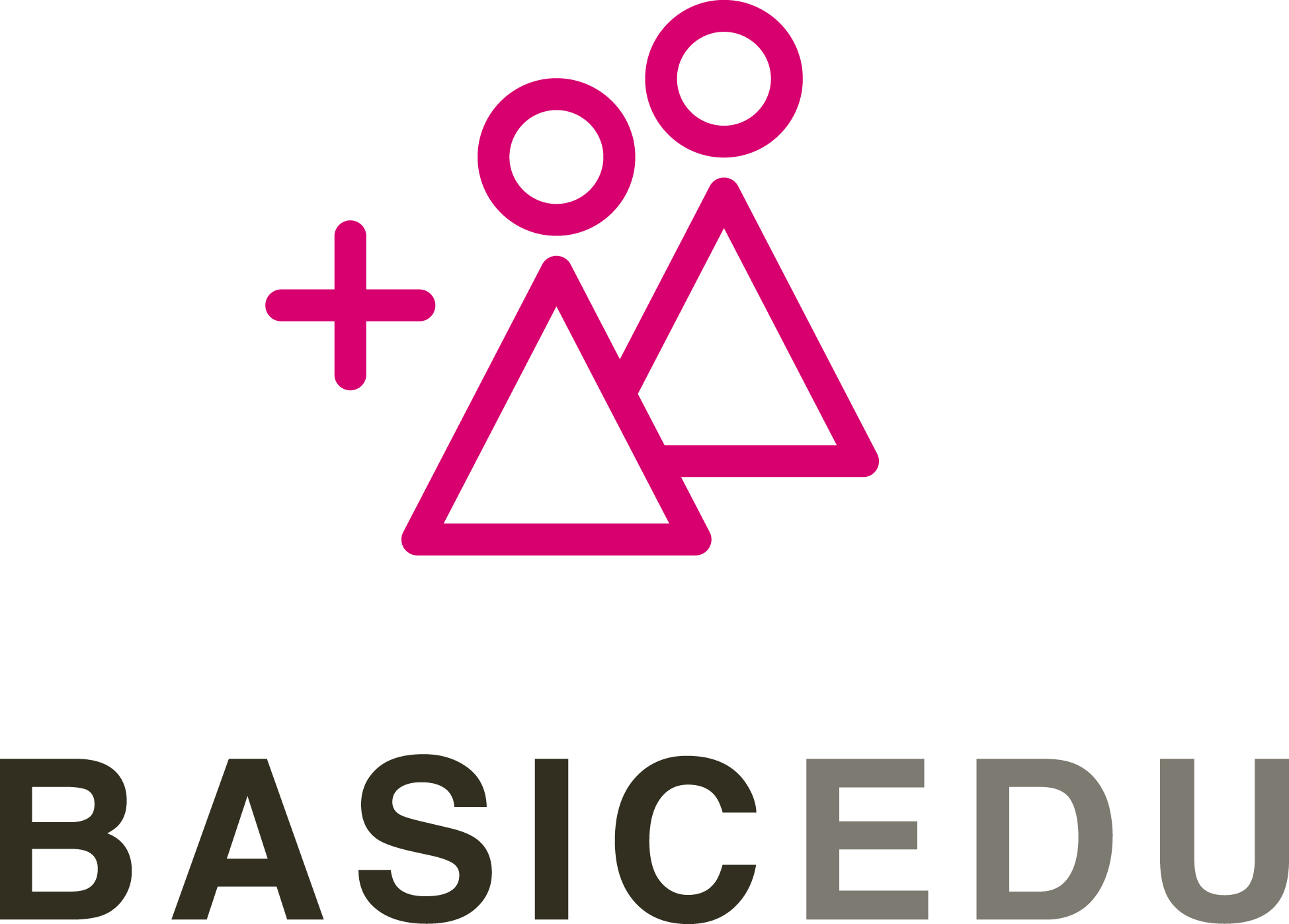



 All the material developed by BasicEDU is licensed under a Creative Commons Attribution 4.0 International License.
All the material developed by BasicEDU is licensed under a Creative Commons Attribution 4.0 International License.
This training course has been developed in the framework of the Erasmus+ project BasicEDU.
The project proposal BASICEDU is addressing the needs of a very specific and vulnerable target group – disadvantaged women because of their educational, social and economic background and at the risk of discrimination because of gender stereotypes, which is the most important agenda in EU recently. Fundamental socio-cultural barriers impede the economic integration of women. In addition, there are institutional and legal barriers, such as poor access to vocational training or jobs in the formal (particularly private) sector, a lack of child care provision, inflexible working times and negative incentives in employment market policy.
Moreover, women who live in rural areas have a higher probability of being unemployed and live farther from opportunities in the labour market and also they face a set of challenges in their social life and are not equal in recognition of their engagement in general. To enable women living in rural areas to integrate in vocational opportunities in the best way possible, a more cohesive integration approach is needed starting from guidance and support from the arrival, through the identification of appropriate educational and professional opportunities, up to accompanying, empowering and mentoring disadvantaged women not only to embrace the EU fundamental values but also to feel free to develop their potential to be involved in the labour market. This is a process which requires also active contribution and strong cooperation among EU countries to offer such support and guidance aimed at disadvantaged women at transnational level.
Vocational integration of women needs vary widely depending on their educational and professional background. Women living in rural areas face specific problems, such as vulnerability resulting from being exposed to discrimination or violence experienced, lack of skills and competences, encounter cultural and language barriers as well as risks of social exclusion and/or gender discrimination. However, this diversity in disadvantaged women’ background is not enough reflected in the labour market integration programs, which the framework for inclusion of disadvantaged women is not being shaped considering different needs and interests of disadvantaged women. So, it is needed to identify women’s active participation in economic life and at developing specific initiatives and approaches in favour of rural women.
On this point, it is necessary to create a gender-sensitive approach at EU level through cooperation with selected rural sub-sectors and provide professional orientation for women in higher and lower-qualified segments and supports the development of new measures to demonstrate the advantages of the greater employment of women living in rural areas.
Against this background, the BASICEDU project overall goal is to enable more effective labour market integration of disadvantaged women and women living in rural areas within the EU through the following sub-objectives:
- Empowering disadvantaged women and women living in rural areas through enhancing their further professional opportunities and thus facilitating their access to the labour market;
- Establishing Mentoring and Empowering relationships between disadvantaged women and opportunities in the local and regional fields;
- Fostering the process of skills assessment of disadvantaged women and women living in rural areas with a tailor-made methodology considering their specific needs;
Considering the fact that the situation of disadvantaged women is neither tackled sufficiently nor individualised enough in any of the EU member states or holistically at EU level, the project consortium aims at elaborating a thorough Empowering and Mentoring approach that will be applicable in all countries in the EU. In order to ensure this transferability, the project partners will combine efforts, exploring specifics of the target groups in different regions of Europe, and creating a unified Assessment Methodology, which will be the basis for the Empowering and Mentoring Programme. And all these resources will be made interactive and easily available online through the Online Learning Platform.
2020-1-TR01-KA204-093850
The European Commission and Turkish National Agency support for the production of this publication does not constitute an endorsement of the contents which reflects the views only of the authors, and the Commission and Agency cannot be held responsible for any use which may be made of the information contained therein.